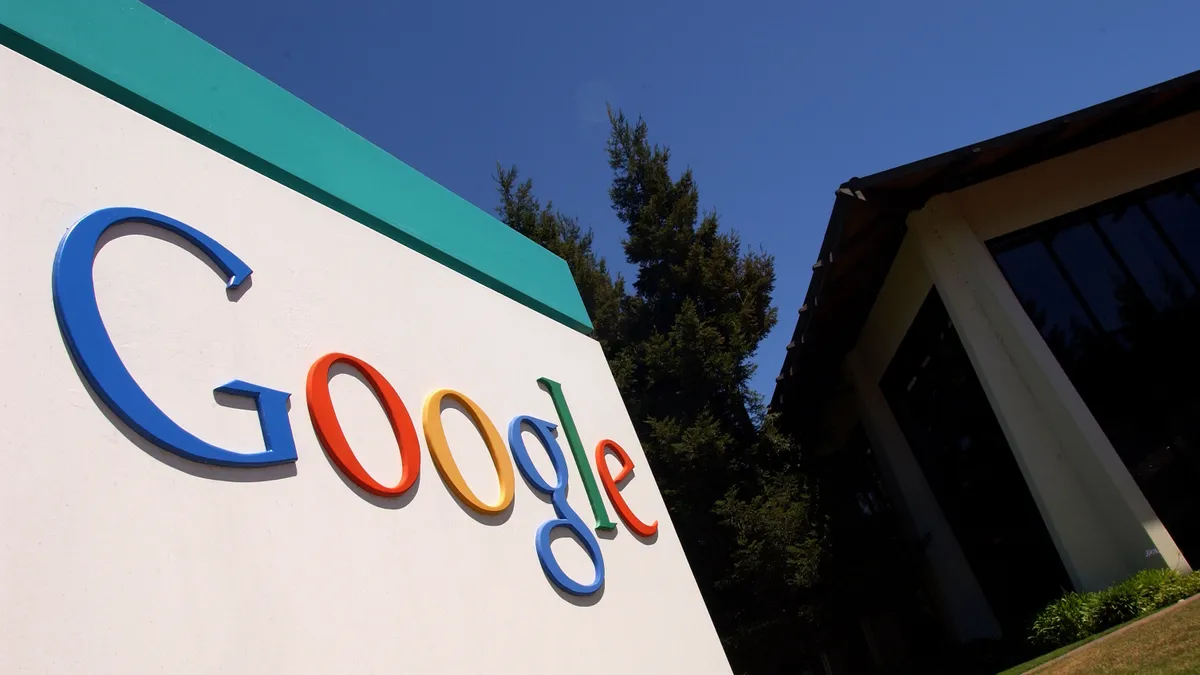Dive Brief:
- Google has increased its paid time off benefits — with some having become effective Jan. 1, and others set to become effective later this year — the company told HR Dive.
- The company now offers 24 weeks of paid leave for birthing parents (up from 18 weeks); 18 weeks for nonbirthing parents (up from 12 weeks); eight weeks for those caring for a seriously ill loved one, what the company calls "carer's leave" (up from four weeks); and a minimum of 20 vacation days (up from 15 days). The latter two benefits will kick in April 2, the company said, while the first two went into effect Jan. 1.
- "More than 40% of our employees are in the 'sandwich generation,' where they might find themselves both bringing up their children and caring for aging family members," Fiona Cicconi, Google's chief people officer, said in a statement. "We want to support our employees at every stage of their lives and that means providing extraordinary benefits, so they can spend more time with their new baby, look after a sick loved one or take care of their own wellbeing."
Dive Insight:
With employees complaining of burnout amid the Great Resignation, companies have increasingly explored ways of improving their compensation and benefit packages to boost retention and provide workers a needed break. Many have leaned into their PTO offerings, stretching their paid time off for specific life events and even cutting hours for all employees.
In December, for example, Pinterest informed HR Dive of a new benefit exclusive to NICU parents, which would allow parents with babies born prematurely to take time off — separate from the company's standard parental leave — to bond with them while in the newborn intensive care unit. Pinterest also expanded its paid leave from 16 weeks to 20 or 26 weeks of leave (depending on the birthing parent) and introduced PTO for miscarriage recovery.
Caregiving challenges, some of which have been specific to the pandemic, may have given rise to many such specific child care leave policies, as well as the increased popularity of benefits that support elder care and care for disabled dependents.
Through the pandemic, paid time off has taken shape in other ways as well. Last summer, companies like Bumble and Hootsuite gave employees a company-wide week off separate from their standard PTO, which employers hoped would force employees to rest and focus on mental health. More recently, a string of companies have enthusiastically embraced the four-day workweek, which many see as the next step in modernizing workplace policy.














